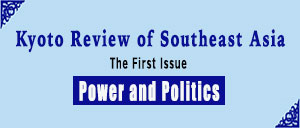
Farchan Bulkin
“State and Society: Indonesian Politics Under the New Order, 1966-1978”
PhD dissertation / University of Washington / 1983
Mochtar Mas’Oed
Ekonomi dan Struktur Politik Orde Baru 1966-71
(New Order Economy and Political Structure 1966-71)
Jakarta / LP3ES / 1989
Daniel Dhakidae
“The State, the Rise of Capital and the Fall of Political Journalism:
Political Economy of the Indonesian News Industry”
PhD dissertation / Cornell University / 1991
This article reviews three important works on Indonesian political economy written by Indonesians during the New Order. It suggests that the dearth of such studies reflects how Soeharto’s New Order marginalised analyses of capitalism and class by suggesting links to the Marxism that it outlawed. None of these works has been published in the English language, although they were originally written as PhD dissertations in American universities. Thus, they are not well known outside Indonesian circles. But only one has been translated into the Indonesian language.
Farchan Bulkin’s work is a broad historical study concerned with the social basis of the Indonesian state, which is related to features of “peripheral capitalism” and to ups and downs in the political fortunes of the country’s “middle class groups.” For Bulkin, the absence of democracy in Indonesia was due mainly to the absence of a strong middle class capable of developing a strong “national” economy. Mochtar Mas’oed’s work attempts to analyse the formative, early period of the New Order and the political structures and institutions which emerged. He draws attention to the correlation of interests between international capital and Indonesia’s new military rulers, intellectuals, and ideologues in supporting a capitalist development path. Daniel Dhakidae’s path-breaking work on the Indonesian press as a capitalist industry is based on primary data and extended periods of field research. Dhakidae argues that the advance of industrial capitalism and the commodification of the news media has changed the very character of journalism in Indonesia, leading to the death of the tradition of “political journalism.”
Vedi R. Hadiz
Vedi R. Hadiz teaches in the Department of Sociology, National University of Singapore.
Read the full article HERE

